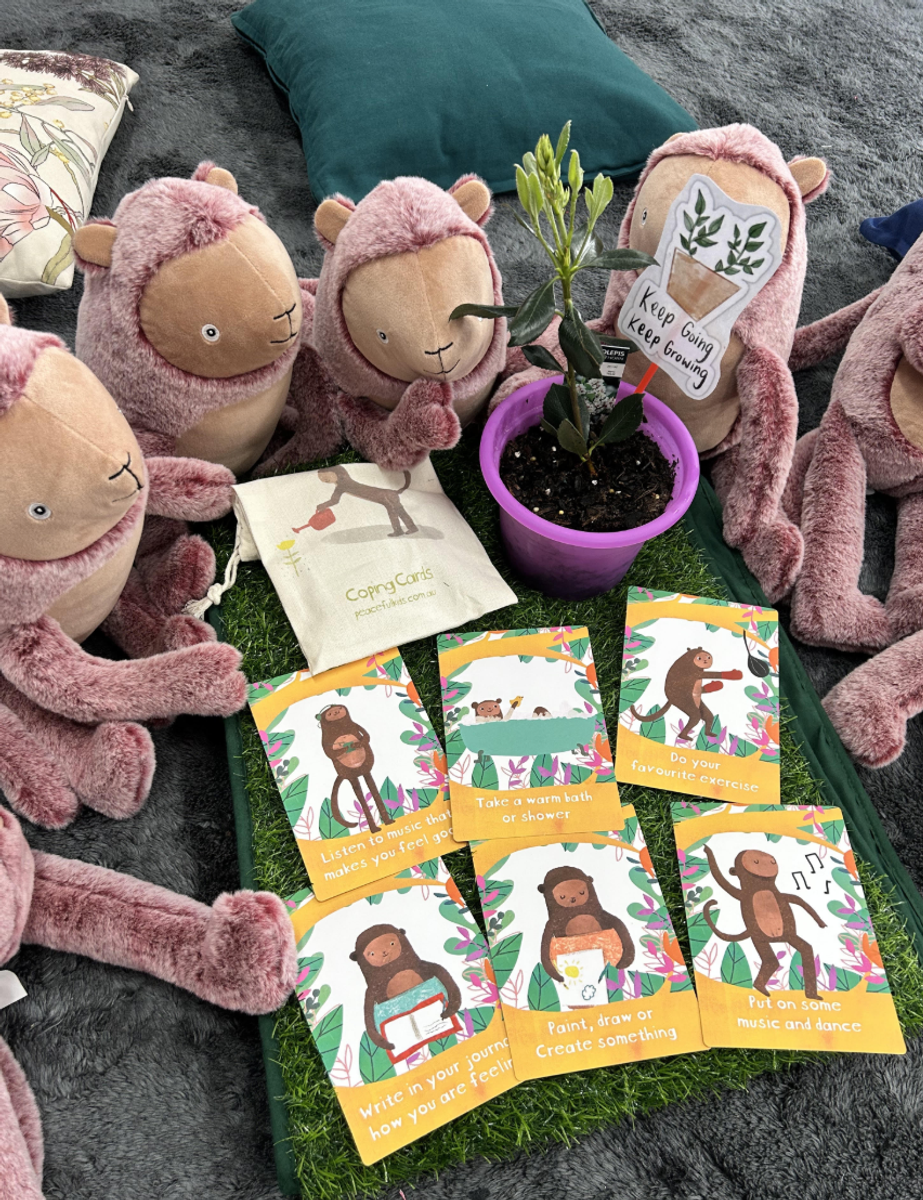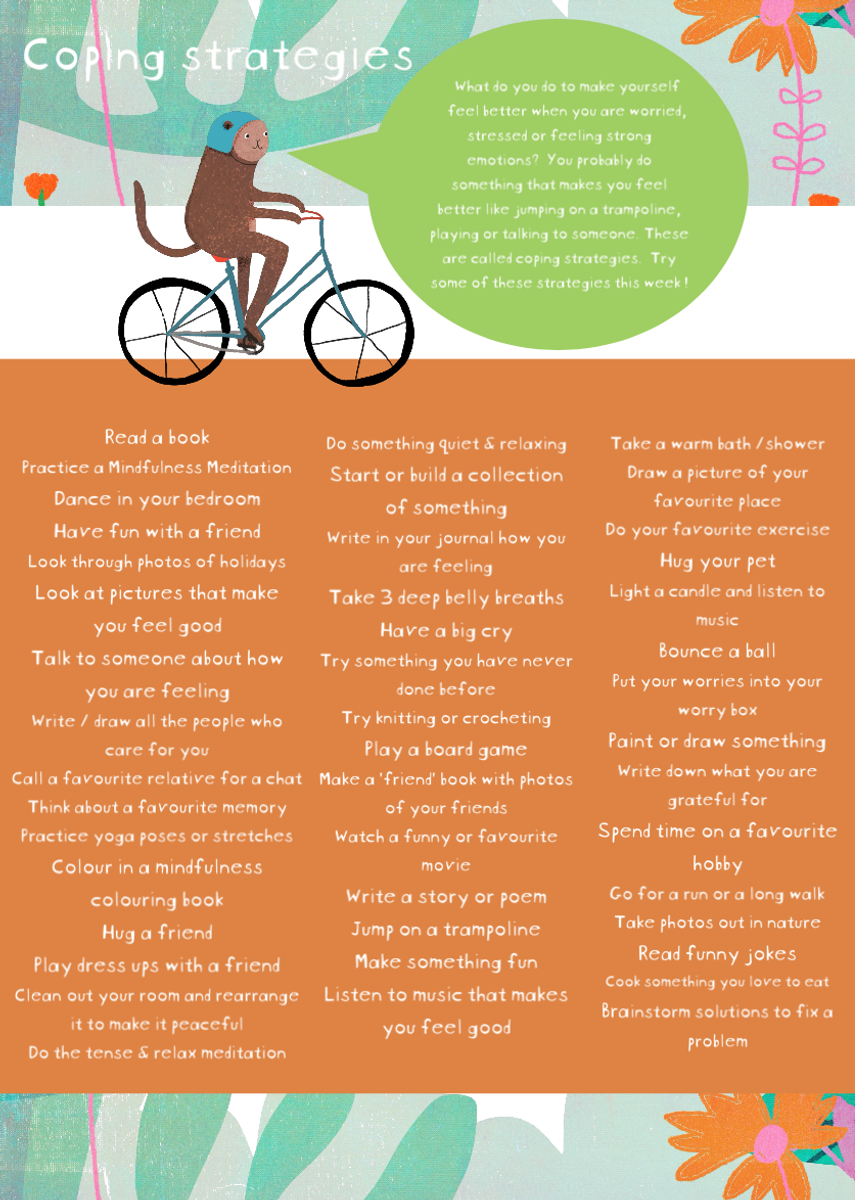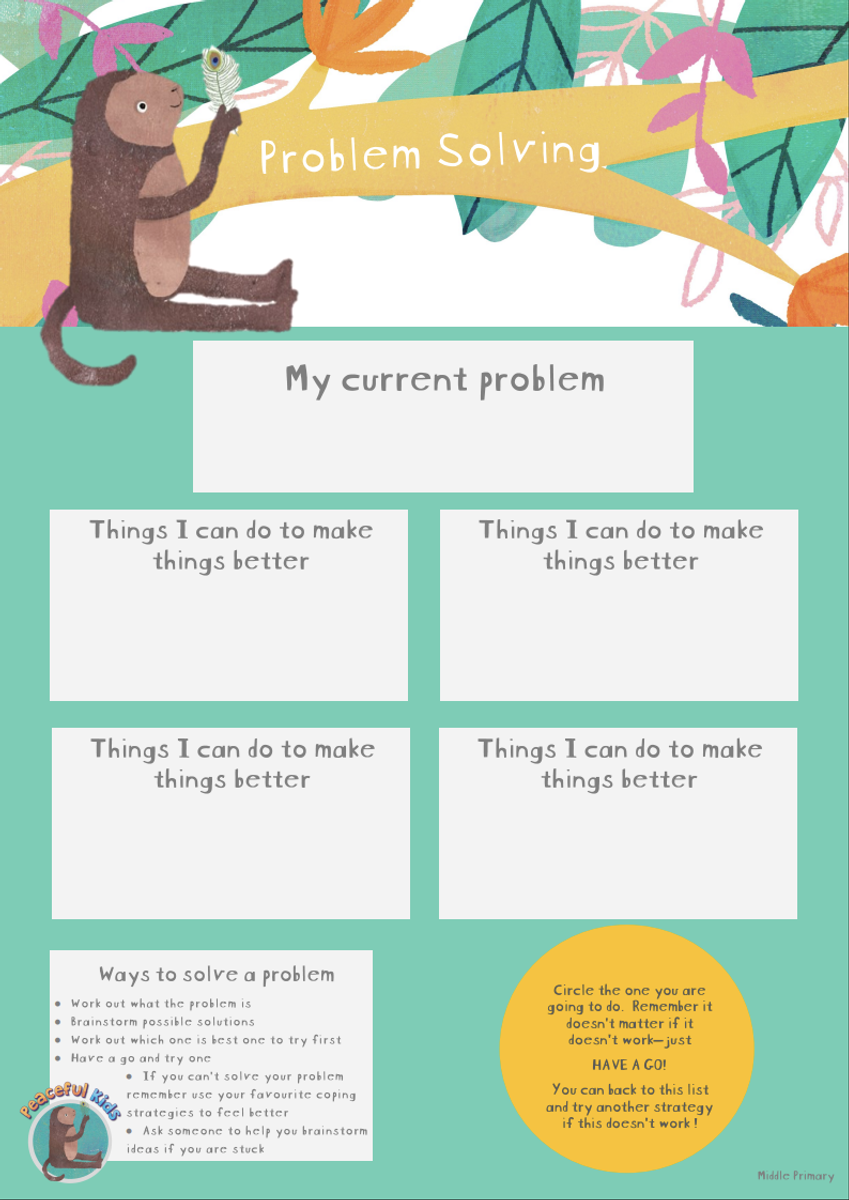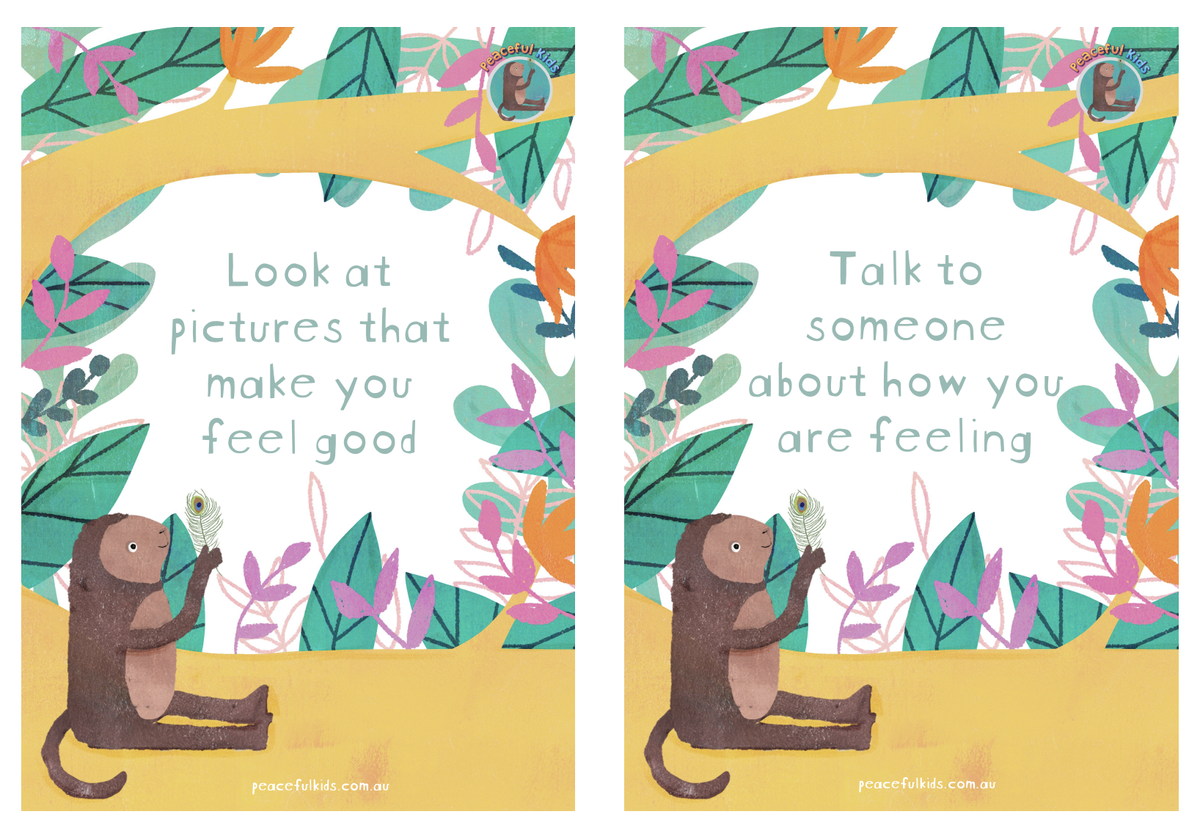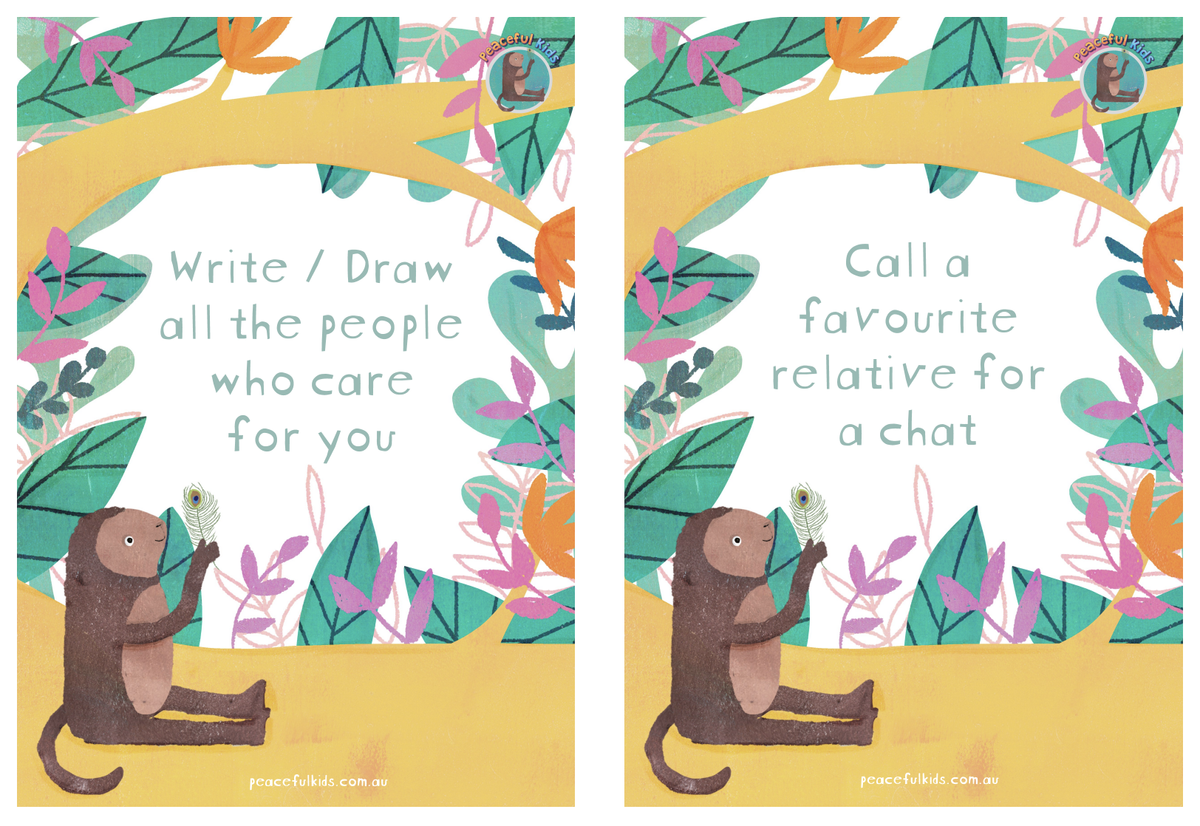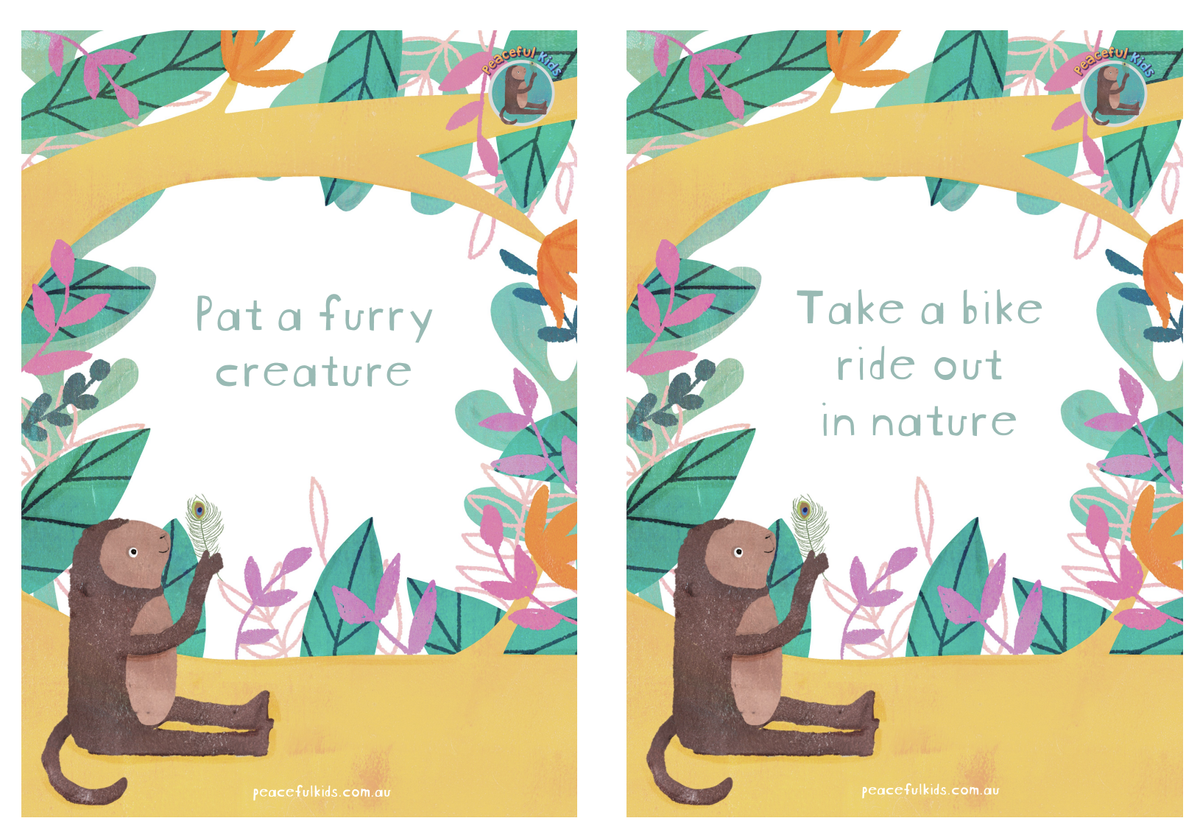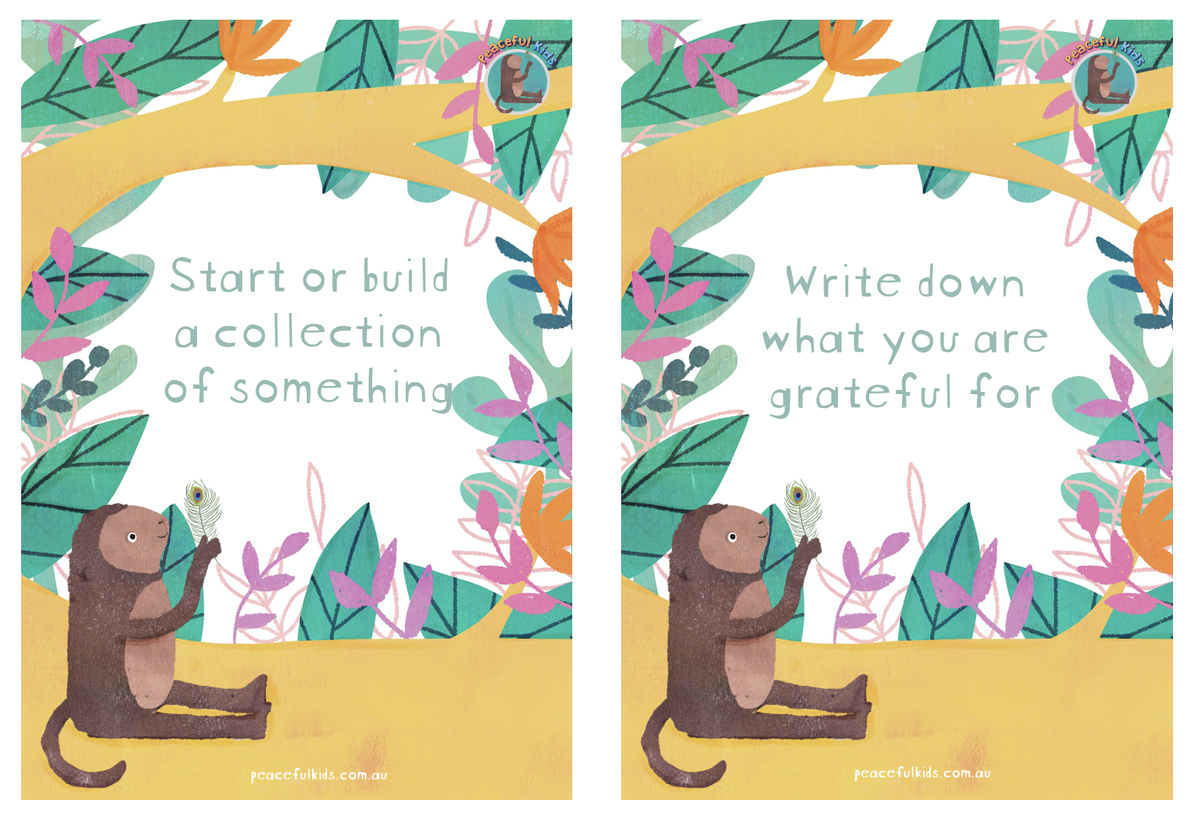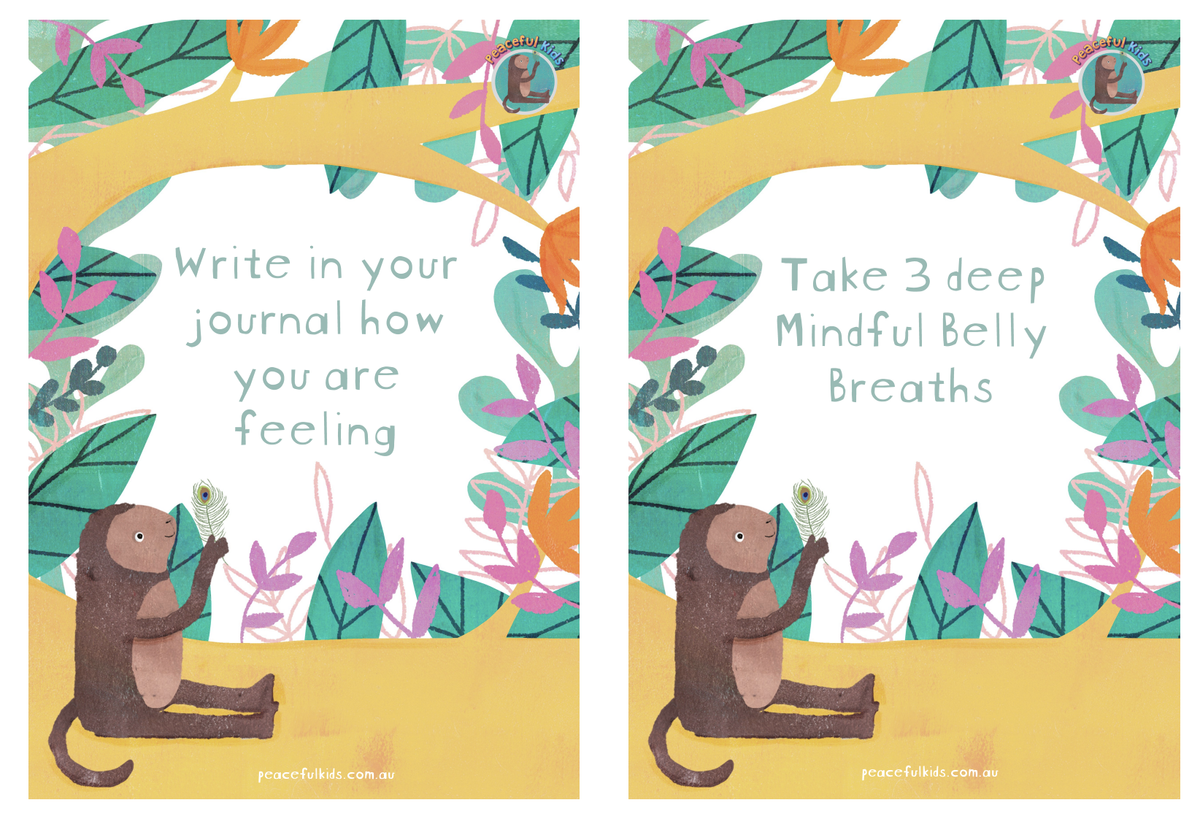Wellbeing
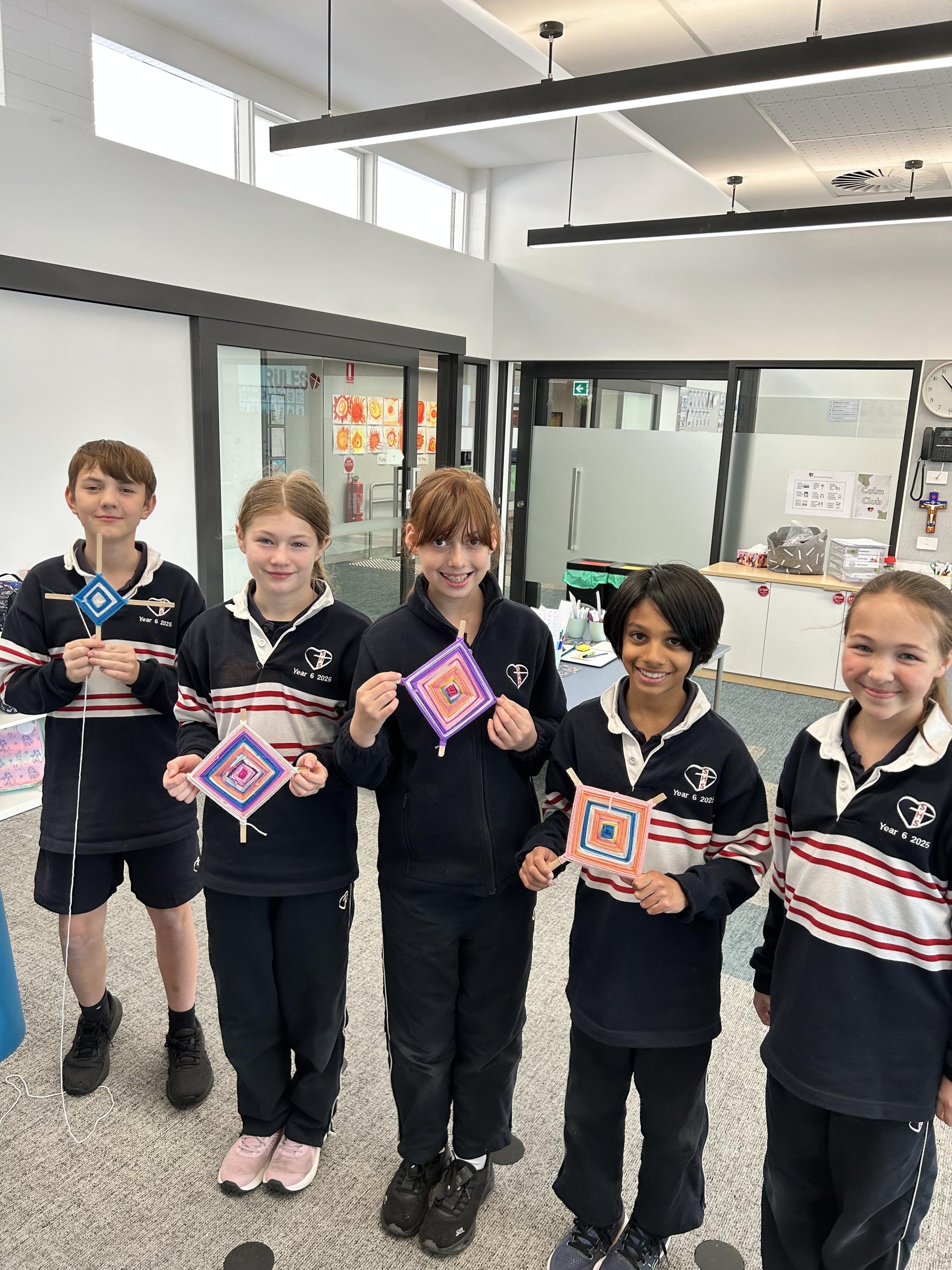
🌿 Peaceful Kids 🌿
This term has seen the commencement of Peaceful Kids. Peaceful Kids is a wellbeing program designed to support children in developing lifelong skills to manage stress, anxiety, and big emotions through mindfulness, relaxation and resilience-building strategies. These sessions hold emphasis on how talking about feelings usually make people feel better. By encouraging children to share their feelings each week, they begin to feel comfortable with this process and able to identify their own feelings more easily.
Learning Positive Coping Skills 💡
A big focus in our sessions has been on positive coping, teaching children ways to handle everyday stresses in healthy and constructive ways. We all need strategies to help us when we feel down, worried or when something bad or difficult happens. Have known strategies in place are useful as we can draw on these during difficult times. Coping strategies fall into two categories (practical and expressive) and provide us a way to cope.
Practical Activities |
|---|
| - Hobbies/interests |
| - Quiet calming activities |
| - Repetitive tasks (to lower stress) such as jumping, bouncing a ball, or walking |
| - Helping others (redirection) |
| - Exercise/Mindful movements |
| - Connection with others (adults or children) to support co-regulation |
Expressive Activities |
|---|
| - Talking to a trusted adult if something is hard |
| - Meditation |
| - Art work and creative expression (drawing, sculpting, theraputty, colouring) |
| - Acting/Role play |
| - Writing stories about how they feel/drawing the situation |
| - Externalising worries through writing in a journal or using their worry box |
By practicing these strategies, students are learning that it’s okay to have big feelings and that there are helpful ways to manage them. These skills not only support learning at school but also wellbeing at home and in the wider community.
Attached are some coping strategies cards that you can talk about at home. These cards help kids to self-regulate and develop effective coping skills, These can be used in the classroom or at home to help children to identify their own unique coping strategies.
Hanna Wood
Wellbeing Leader

